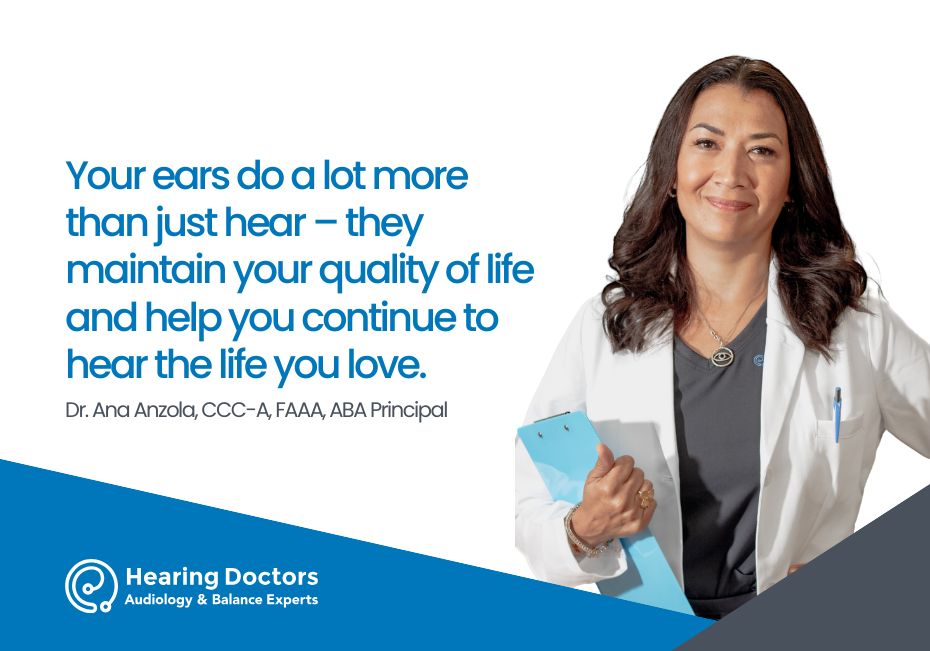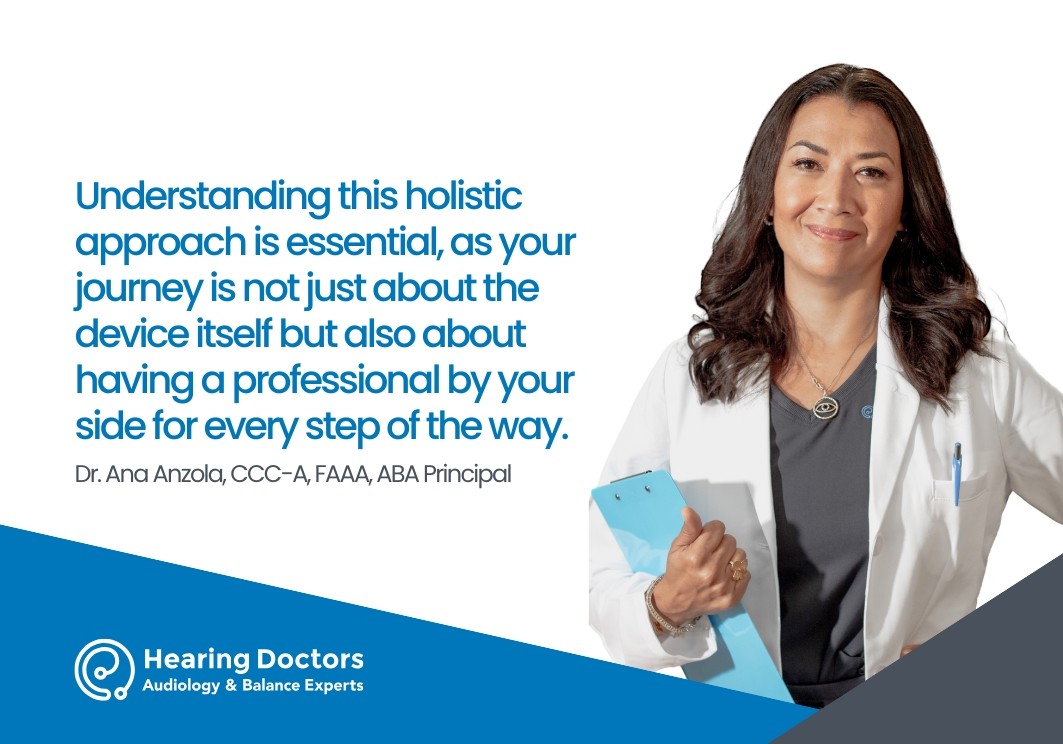Jun 10, 2013
Dr. Ana
Anzola, CCC-A, FAAA, ABA Principal
A traumatic brain injury (TBI) is any kind of injury that causes structural or physiological change to brain function. It is usually the result of an external force like a blast, a direct blow or a fall, and will present with the occurrence or worsening of any of the following signs:
Loss or decreased level of consciousness
Memory loss
Feeling dazed, confused or disoriented
Neurological changes including weakness, loss of balance or changes in vision
Hearing Loss A Major Obstacle with Traumatic Brain Injuries
One of the biggest problems with a traumatic brain injury is diagnosing exact injuries, because those who suffer from it will often have multiple injuries at once, making diagnosis and treatment a challenge. Hearing and balance issues are often secondary to physical trauma, but the symptoms of hearing loss can lead to confusion and misdiagnosis of other injuries.
Many Ways Hearing Can Be Compromised
Many people with a traumatic brain injury suffer damage to the inner ear or temporal lobe, but even if the ear itself isn’t damaged, the way the brain processes sound could be compromised. There are several challenges that health care providers face when dealing with a TBI combined with hearing loss:
Undiagnosed hearing loss can interfere with the success of medical care and rehabilitation
Auditory problems could be mistaken for other conditions, including post-traumatic stress disorder, cognitive disruptions or mental health issues
Hearing loss can aggravate the social and emotional effects of a traumatic brain injury
Hearing Loss With Mild Injuries
Even a person with a mild traumatic brain injury, who may never lose consciousness or who only blacks out for a minute or two, may suffer from some hearing changes. A mild traumatic brain injury can include the following symptoms:
Headache
Dizziness
Confusion
Blurred vision
Tinnitus (ringing in the ears)
Behavioral changes
Any of these symptoms, and the injury itself, can be amplified by any hearing loss, whether present from before or any new hearing loss as a result of the injury.
An Audiologist Can Help
A trained Audiologist is an important part of the treatment team for any person suffering from a brain injury. Correct testing and diagnosis of any hearing loss, and correction for the hearing loss with the best tools available, makes it easier to understand, diagnose and treat other symptoms from a brain injury. Hearing loss can confuse the injury, and it is easily diagnosed and treated when you are aware that it may be present.
You’re Not Alone
If you or a loved one suspect that you may have hearing loss from an injury or for any other reason, contact one of our experienced audiologists today. You don't have to deal with this alone. We’re here to help.
Popular Blogs

Jun 3, 2025
Dr. Ana
Anzola, CCC-A, FAAA, ABA Principal
Understanding Types of Hearing Loss: Sensorineural, Conductive, and Mixed

May 21, 2025
Dr. Ana
Anzola, CCC-A, FAAA, ABA Principal
What Impact Is Artificial Intelligence Having on Hearing Aid Technology?

Apr 28, 2025
Dr. Ana
Anzola, CCC-A, FAAA, ABA Principal
Do You Think You’re Too Young for Hearing Loss?

Apr 15, 2025
Dr. Ana
Anzola, CCC-A, FAAA, ABA Principal
The Best Hearing Aids in 2025: Insights From a Doctor of Audiology


